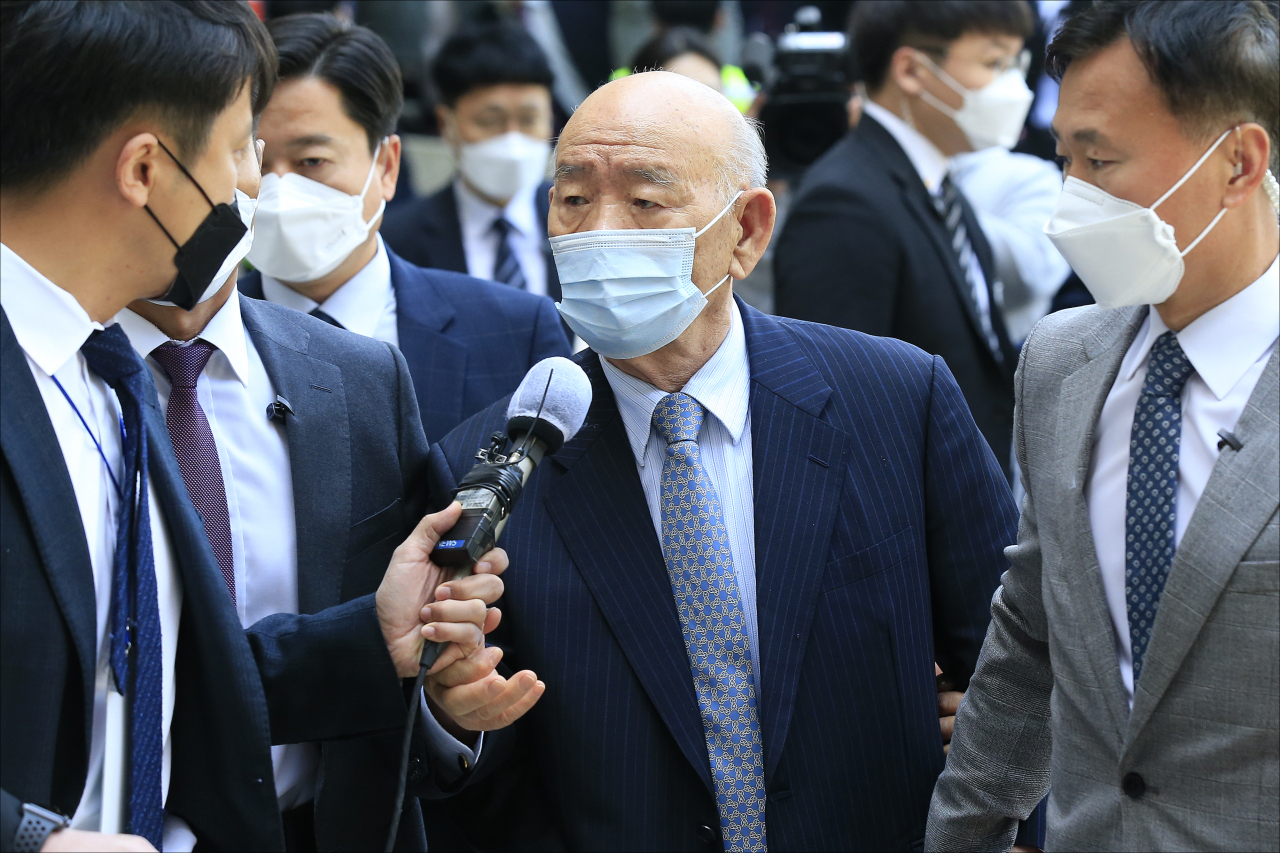Ex-president denies charges in defamation case concerning 1980 pro-democracy uprising
By Park Han-naPublished : April 27, 2020 - 18:06

Former President Chun Doo-hwan stuck to his lifelong claim that there was no helicopter firing at civilians during the 1980 pro-democracy uprising, while standing trial for libel in the regional city of Gwangju on Monday.
“Many more lives would have been lost if shots were fired from helicopters. No son of the Republic of Korea would have done such a reckless thing,” the 89-year-old said at the Gwangju District Court.
Chun’s statement runs counter to over 20 testimonies made during the same trial for the existence of helicopter shooting during the massacre.
Whether or not shots were fired from military helicopters is a point of contention in the trial as Chun is accused of defaming a deceased priest, one of the eye witnesses who came forward. Chun called him a “shameless lair” in his memoir released in 2017.
Chun led an authoritarian regime from 1980-1988 and for his role in the 1980 Gwangju Democratic Uprising, he was sentenced to death in 1997, only to be pardoned later.
As for the ongoing libel trial, the former leader has not attended any court hearings since March 11 last year, and has told the court he suffers from dementia.
During Monday’s hearing that began at around 2 p.m., he was seen wearing an assistive listening device and dozing off at some points.
He was indicted in May 2018 on defamation charges in connection with the controversial memoir he published in April 2017, which mentions the late Roman Catholic priest Cho Chul-hyun, a victim of the Chun government’s bloody crackdown on the Gwangju pro-democracy revolt.
During last year’s trial, Chun denied any wrongdoings during the hourlong hearing, saying he wrote the memoir based on state records and the shooting from the helicopters had not yet been proven to be true.
Hundreds, possibly thousands, are believed to have been killed when Gwangju residents rose up against the military government led by Chun on May 18, 1980.
Civic groups, including the May 18 Memorial Foundation, moved a statue of the former president to the front of the court while calling for tough punishment. The statue, previously installed at the former South Jeolla Provincial Office in Gwangju, depicts Chun on his knees in prison.
If convicted, Chun could face up to two years in prison or a fine of up to 5 million won ($4,000).
On Sunday, Gwangju Mayor Lee Yong-sub called on Chun to reveal the truth.
“If he participates in the trial with an arrogant and unfaithful manner like he did a year ago, we will no longer stand idly by for his insults against Gwangju citizens and victims,” Lee said in a statement.
In November last year, a leaked video of Chun on a golf course sparked public uproar. Political parties and civic organizations criticized his behavior, calling it a “mockery of history” and arguing that his health was not so fragile as to excuse him from facing trial.
By Park Han-na (hnpark@heraldcorp.com)



















![[Today’s K-pop] Treasure to publish magazine for debut anniversary](http://res.heraldm.com/phpwas/restmb_idxmake.php?idx=642&simg=/content/image/2024/07/26/20240726050551_0.jpg&u=)